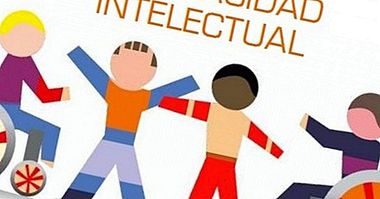Teaching leadership skills and problem solving to primary school girls prevents aggression
A study conducted in Philadelphia (United States) suggests that educators, particularly those in primary school, should teach their students problem-solving skills and should provide them with opportunities to develop leadership skills to prevent relational aggression in the future.
The relational aggression It includes gossip and social exclusion to hurt others, and is the most common form of aggression among girls.
The study tests the effectiveness of an aggression prevention program
A recent study has been conducted by the Violence Prevention Initiative (VPI) at the Children's Hospital of Philadelphia (CHOP) and states that teaching leadership skills and providing opportunities for girls to develop leadership skills prevents relational aggression among girls .
The study has been published in The Journal Psychology of Violence, and a random sample of African-American girls from third to fifth grade (children aged 8 to 11 years) has been used to test the effectiveness of the program in the prevention of "Friend to Friend" aggression (Friend to Friend, F2F).
First program of violence prevention that shows its effectiveness even one year after having done it
The F2F is the first and only program for the prevention of aggression that shows its effectiveness in reducing the behavior of relational aggression among girls and, moreover, continue their positive results even one year after finishing the program . This program improves skills and knowledge in solving social problems and causes a decrease in the levels of relational aggression.
"Including the learning of this type of skills in the school curriculum is important because the children who attend it, especially in marginal areas, have a serious risk of acquiring emotional and behavioral problems," says Dr. Stephen Leff, director of this study and co-director of the Violence Prevention Initiative (VPI).
"This is the evidence that having problem-solving skills and having the opportunity to develop leadership skills increases resilience and guides you towards a better future in terms of social interactions. This positive approach is instilled in the school prevention programs that are part of our Violence Prevention Initiative at the Children's Hospital of Philadelphia"Adds Dr. Leff.
A program that is more than a decade old
The team of researchers has been developing and redefining the program for a decade thanks to the different investigations it has carried out in the CHOP, in association with the main stakeholders of the community. "This associative approach has been used to develop the F2F program and to innovate the teaching modalities used in the same program, such as drawings, videos or role plays," says Brooke Paskewich, psychologist and director of the VPI.
In addition, it explains that "involving students, teachers and parents in the design of the program has helped to ensure cultural sensitivity, proper development and appropriate use for ethnic minorities."
F2F that has been used in this study, is a program of 20 sessions that took place during 40 minutes per session. He taught strategies for solving social problems and provided opportunities for girls to direct classroom sessions for their peers. A pilot study published in 2009 already advanced the effectiveness of the F2F program for the reduction of relational aggression among primary school girls in two North American schools.
The current study included 144 aggressive girls (relational aggressiveness) from 44 different classrooms belonging to the district of Philadelphia. The subjects were randomly divided between the F2F group and the control group to perform the investigation.
Tips for designing a successful program to prevent aggression in school
Dr. Leff, after analyzing the results of his study, offers the following suggestions for the design and evaluation of successful aggression prevention programs:
- You have to define aggression in general terms , that is, as any action taken by a child that inflicts physical or mental harm on another child.
- Programs should focus on prevention and early intervention
- Programs should emphasize positive social behavior : prosocial behaviors, anger management skills, and respect for peers and adults.
- Pay attention to the recognition and the understanding of different types of aggression: For example, girls most commonly express relational aggression and children are more likely to participate in acts of physical aggression.
- It is necessary to be sensitive to culture and foster collaboration between schools, families and neighborhoods.
- Aggression prevention programs must be developed in a manner that responds to the specific needs and values of the school and its community.
- They should incorporate a strong research component and should measure the results. It is also necessary to evaluate the long-term effects.
- More than in the classroom, programs to prevent aggression should be carried out in natural environments: for example, play areas.



















